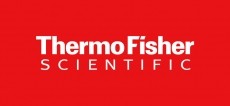Shortages mar Q3 as Pfizer says Hospira remediation taking longer than expected

Pfizer was fully aware of the long string of product recalls and shortages attached to Hospira manufacturing facilities when it bought the drug firm for $17bn (€14.6bn) in 2015 and said it was “comfortable” addressing the problems.
But in its third quarter 2017 results this week, Pfizer CEO Ian Read acknowledged integration efforts have taken longer than expected and a 12% operational decline in its sterile injectables portfolio was “primarily due to legacy Hospira product shortages in the US.”
He told stakeholders Pfizer’s Essential Health portfolio has been experiencing supply shortages for products from the legacy Hospira portfolio, “largely driven by capacity constraints and technical issues.”
He continued: “When we acquired Hospira, we originally thought it would take one to two years to integrate the manufacturing plants and resolve the majority of the supply chain issues. We have a robust action plan in place, and we believe we will make substantial progress in 2018 towards reducing the sterile injectable shortages.”
CFO Frank D'Amelio confirmed remediation efforts were taking longer than expected, adding this has cost Pfizer “several hundred million in 2017.”
Most recently, the former Hospira facility in McPherson, Kansas – now part of Pfizer’s contracting manufacturing business CentreOne – received a US Food and Drug Administration (FDA) warning letter.
The letter, received earlier this year and described at the time as “disappointing” by John Young, president of Pfizer Essential Health, led to the FDA rejection of Pfizer's biosimilar version of Amgen’s anaemia drug Epogen in June.
Speaking Tuesday, Young told investors Pfizer has “submitted a corrective and preventative action plan to the FDA, and we've been diligently working to address the items outlined in the warning letter.”
For the third quarter, Pfizer reported total revenues across all its business units of $13.2bn, reflecting a 1% year-on-year operational growth.
CORRECTION: The original article stated the biosimilar version of Amgen’s anaemia drug Epogen was developed by both Pfizer and Celltrion. This is not the case.














